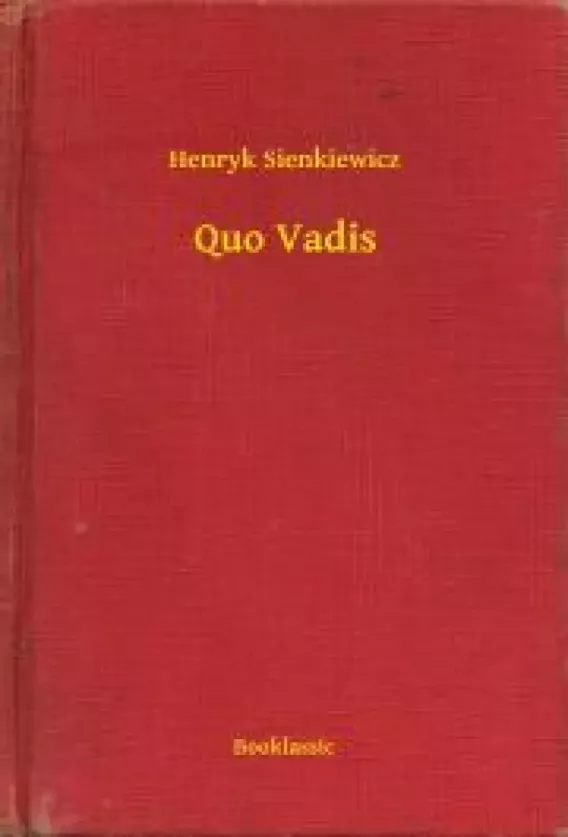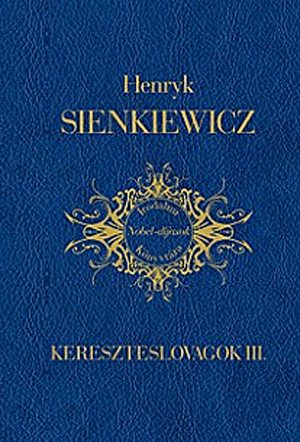
A kép illusztráció
Szállítás:
Azonnal
Elérhető nálunk:
.ePub formátumban
Borító ár:
312 Ft
Rendeléskor fizetendő online ár:
296 Ft
Quo Vadis: A Narrative of the Time of Nero, commonly known as Quo Vadis, is a historical novel written by Henryk Sienkiewicz. Quo vadis is Latin for "Where are you going?" and alludes to a New Testament verse (John 13:36). The verse, in the King James Version, reads as follows, "Simon Peter said unto him, Lord, whither goest thou?
Leírás
Raktári kód:
184940
ISBN:
9789635240449
EAN:
9789635240449
Gyártó kód:
15086
Megjelenés:
2015.
Oldalszám:
419
Nyelv:
angol
Quo Vadis: A Narrative of the Time of Nero, commonly known as Quo Vadis, is a historical novel written by Henryk Sienkiewicz. Quo vadis is Latin for "Where are you going?" and alludes to a New Testament verse (John 13:36). The verse, in the King James Version, reads as follows, "Simon Peter said unto him, Lord, whither goest thou? Jesus answered him, Whither I go, thou canst not follow me now; but thou shalt follow me afterwards."Quo Vadis tells of a love that develops between a young Christian woman, Ligia (or Lygia), and Marcus Vinicius, a Roman patrician. It takes place in the city of Rome under the rule of emperor Nero around AD 64.Sienkiewicz studied the Roman Empire extensively prior to writing the novel, with the aim of getting historical details correct. As such, several historical figures appear in the book. As a whole, the novel carries a powerful pro-Christian message.Published in installments in three Polish dailies in 1895, it came out in book form in 1896 and has since been translated into more than 50 languages. This novel contributed to Sienkiewicz's Nobel Prize for literature in 1905.
Vélemények










